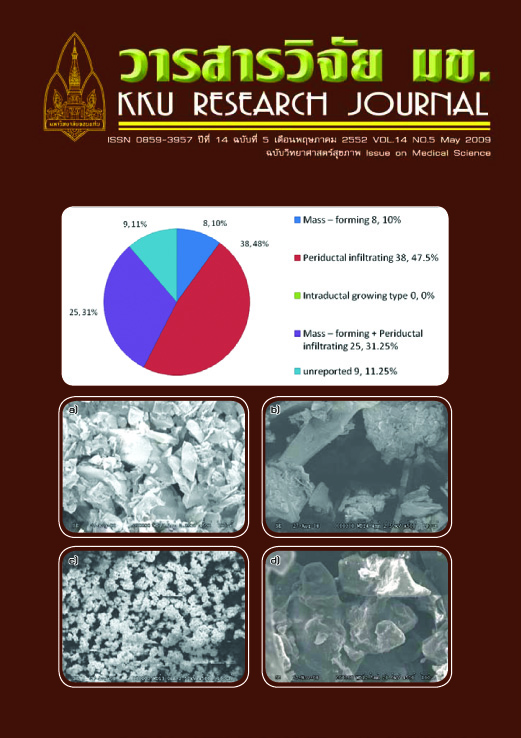The effect of silk sericin protein on collagen production and skin wound healing in rats (Thai)
Main Article Content
Abstract
Silk sericin protein can be extracted from silkworm cocoon by several methods such as high pressure and high temperature degumming techniques. Sericin extraction from 3 silk strains shows different molecular weights within the range of 35-150 kDa. Adding sericin at concentrations between 0.2-1.0 mg/mL into fibroblast cell culture medium shows that sericin can promote cell growth and collagen production. However, different silk strains can promote cell growth and collagen production at different levels and in a concentration dependent manner. Sericin from Chul 1/1 strain can promote cell growth and collagen production at the highest level. At a concentration of 1.0 mg/mL, sericin from Chul 1/1 strain can promote fibroblast cell growth at a minimum of 20% and also can activate collagen production 2.5 and 1.5 times higher than the levels activated by sericin from Chul 3/2 and 4/2 strain, respectively. Silk sericin from Chul 1/1 strain can significantly promote better healing in ratsง wounds when compared to Betadine® (complete healing times are 12 and 14 days for wounds treated with sericin cream and Betadine®, respectively) or cream base alone (complete healing times are 12 and 17 days for wounds treated with sericin cream and cream base, respectively). Treatment with sericin cream shows no allergic reaction and renal as well as liver functions are normal after using sericin cream for 15 days.


